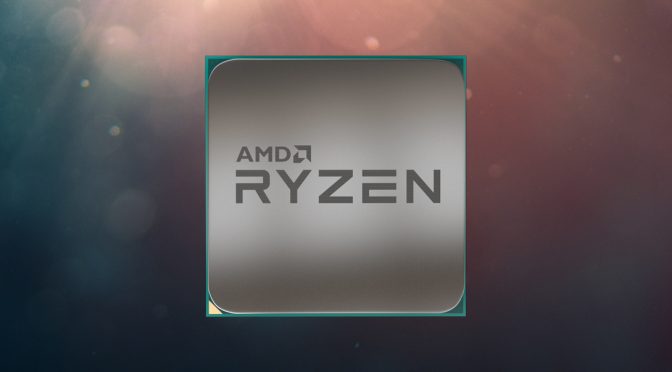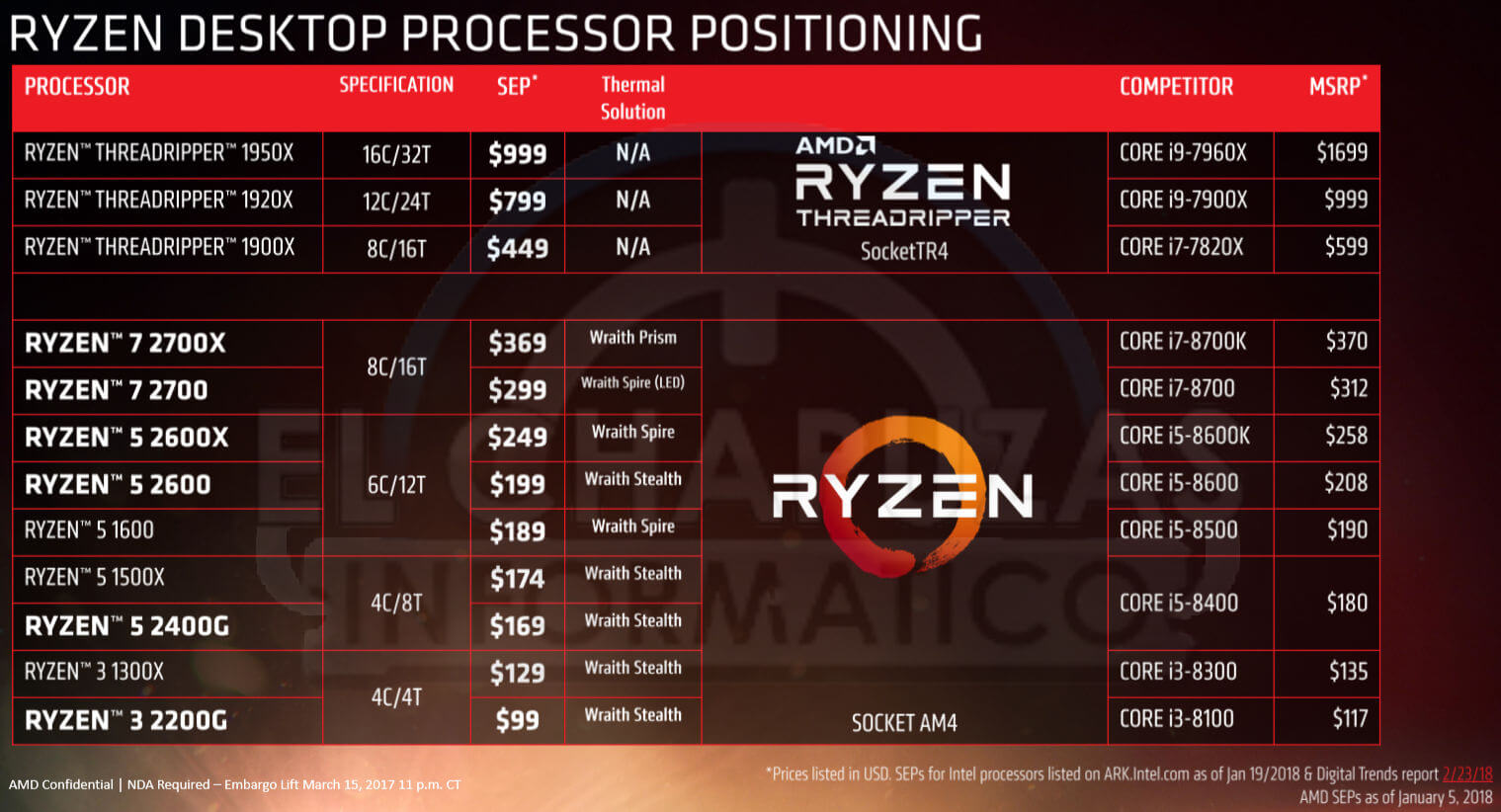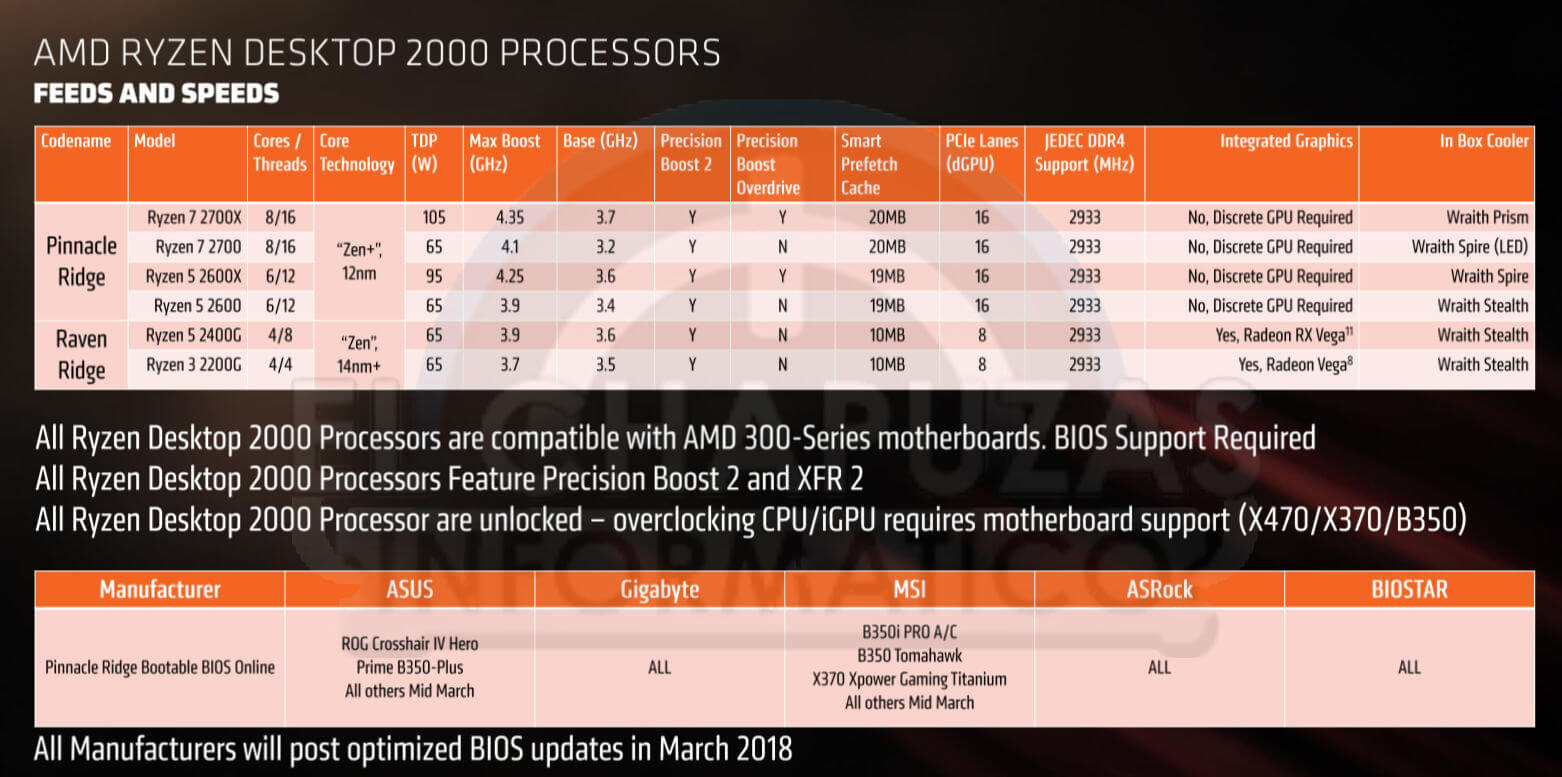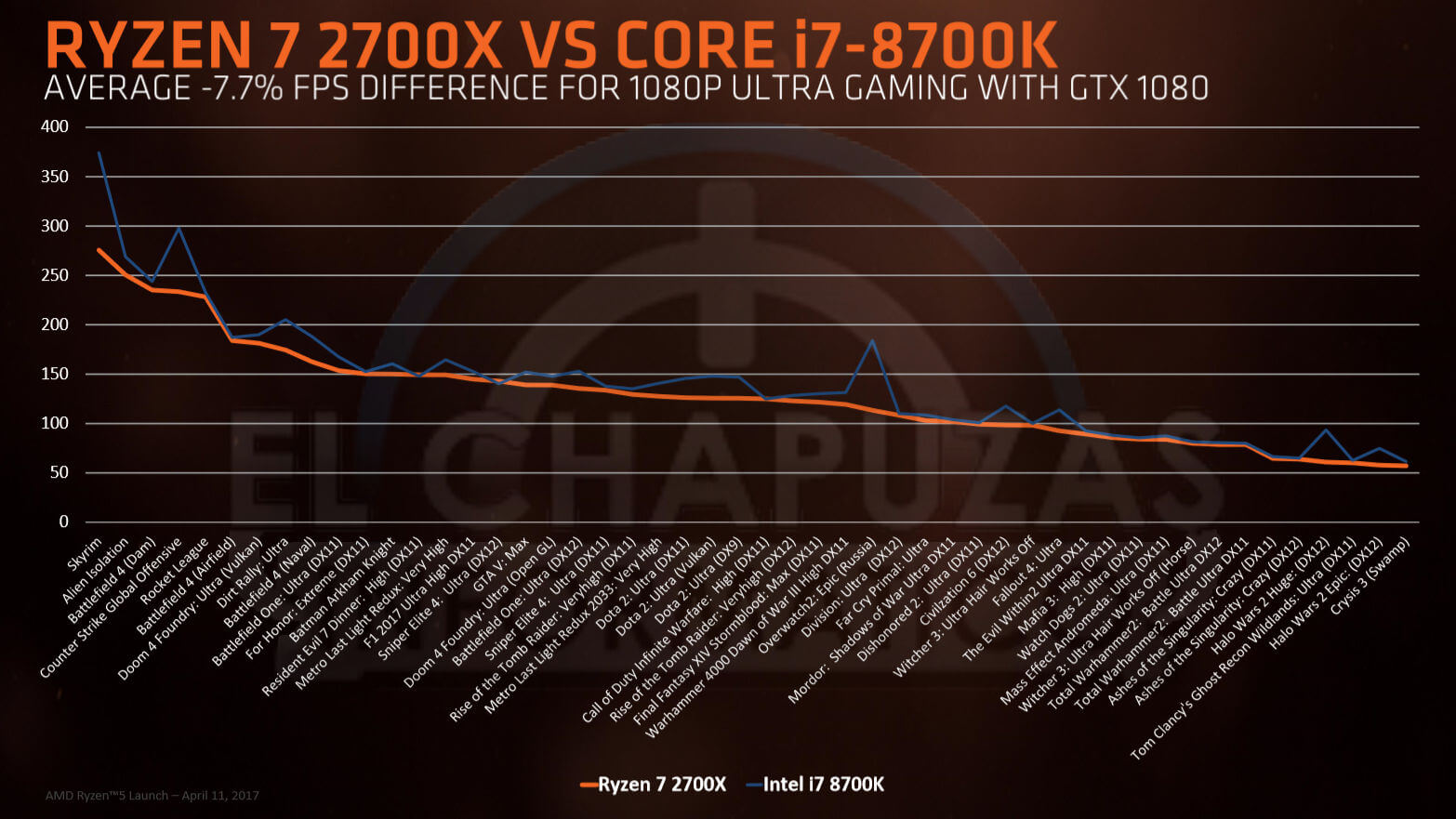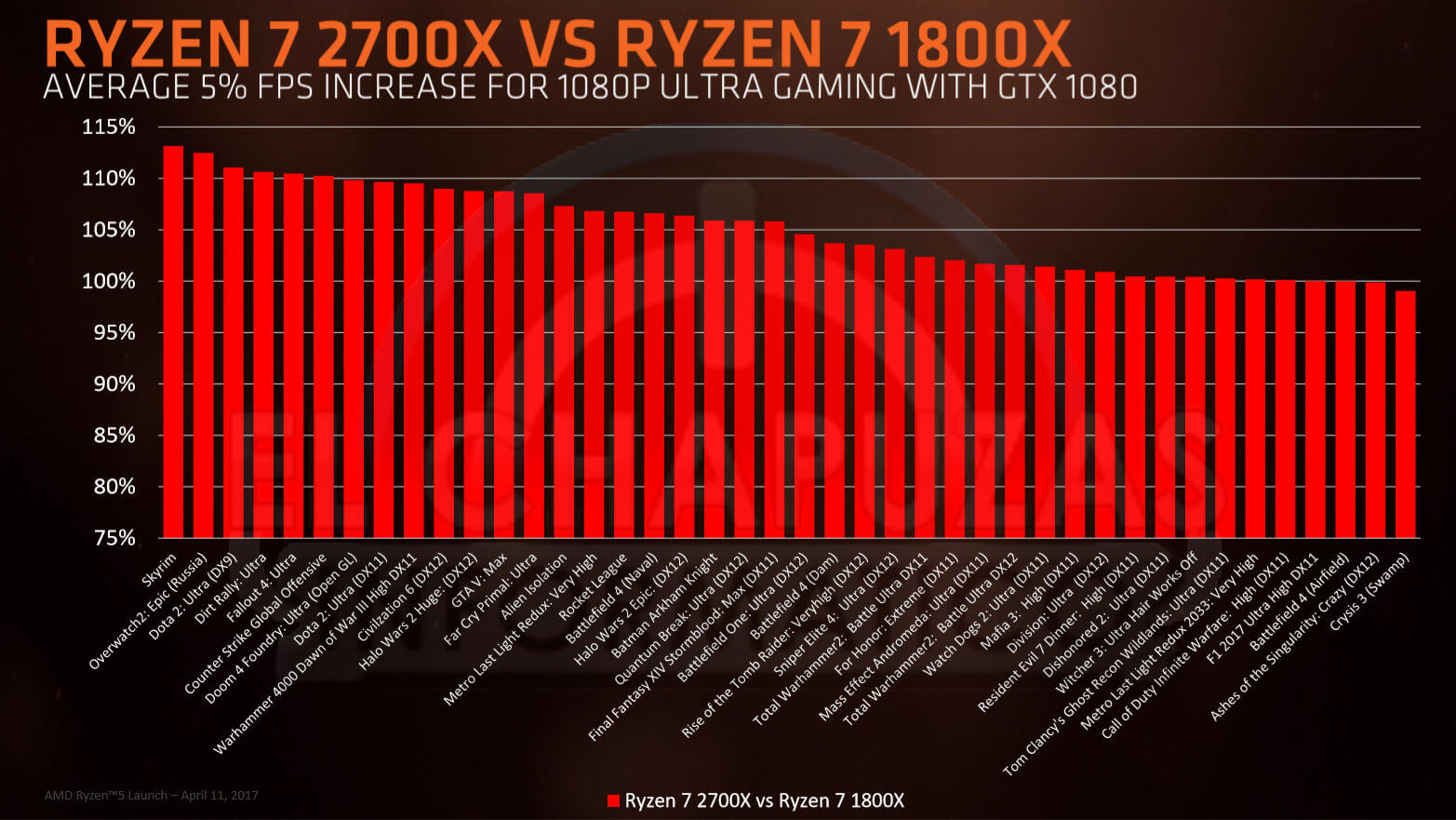Spanish website ElChapuzasInformatico has leaked the official slides for AMD’s 2nd generation Ryzen CPUs, revealing the specs, prices and first gaming benchmarks. As we can see below, AMD will be offering six new CPUs which are: Ryzen 3 2200G, Ryzen 5 2400G, Ryzen 5 2600, Ryzen 5 2600X, Ryzen 7 2700 and Ryzen 7 2700X.
AMD’s flagship CPU will be the Ryzen 7 2700X which will compete against Intel’s i7 8700K. The AMD Ryzen 7 2700X will feature 8 cores, will support 16 threads, will be clocked at 3.7 GHz, can be turbo boosted at 4.35 GHz and will cost around $369. On the other hand, the Ryzen 7 2700 will be clocked at 3.2Ghz and can be turbo boosted at 4.1Ghz and will cost around $299. Below you can find the prices and specs for the rest AMD Ryzen CPUs.
Surprisingly enough, AMD has shared the first gaming benchmarks at 1080p and admitted that its flagship CPU, the AMD Ryzen 7 2700X, is not faster than its direct competitor, the Intel i7 8700K. According to the graphs, the new Ryzen 7 CPU is around 7.7% slower in a variety of games than the i7 8700K. As such, those interested solely in PC games should stick with Intel’s CPU.
Compared to Ryzen 7 1800X, the upcoming AMD Ryzen 7 2700X CPU is faster by 5% in a variety of games at 1080p. Yes, AMD is finally offering proper CPU benchmarks and not ones that are in ridiculously high 4K resolutions. What’s also interesting is that the red team actually used NVIDIA’s GTX1080 for these tests.
Last but not least, the first X470 motherboards will launch this April, meaning that these new CPUs may also launch in the very same month.

John is the founder and Editor in Chief at DSOGaming. He is a PC gaming fan and highly supports the modding and indie communities. Before creating DSOGaming, John worked on numerous gaming websites. While he is a die-hard PC gamer, his gaming roots can be found on consoles. John loved – and still does – the 16-bit consoles, and considers SNES to be one of the best consoles. Still, the PC platform won him over consoles. That was mainly due to 3DFX and its iconic dedicated 3D accelerator graphics card, Voodoo 2. John has also written a higher degree thesis on the “The Evolution of PC graphics cards.”
Contact: Email

